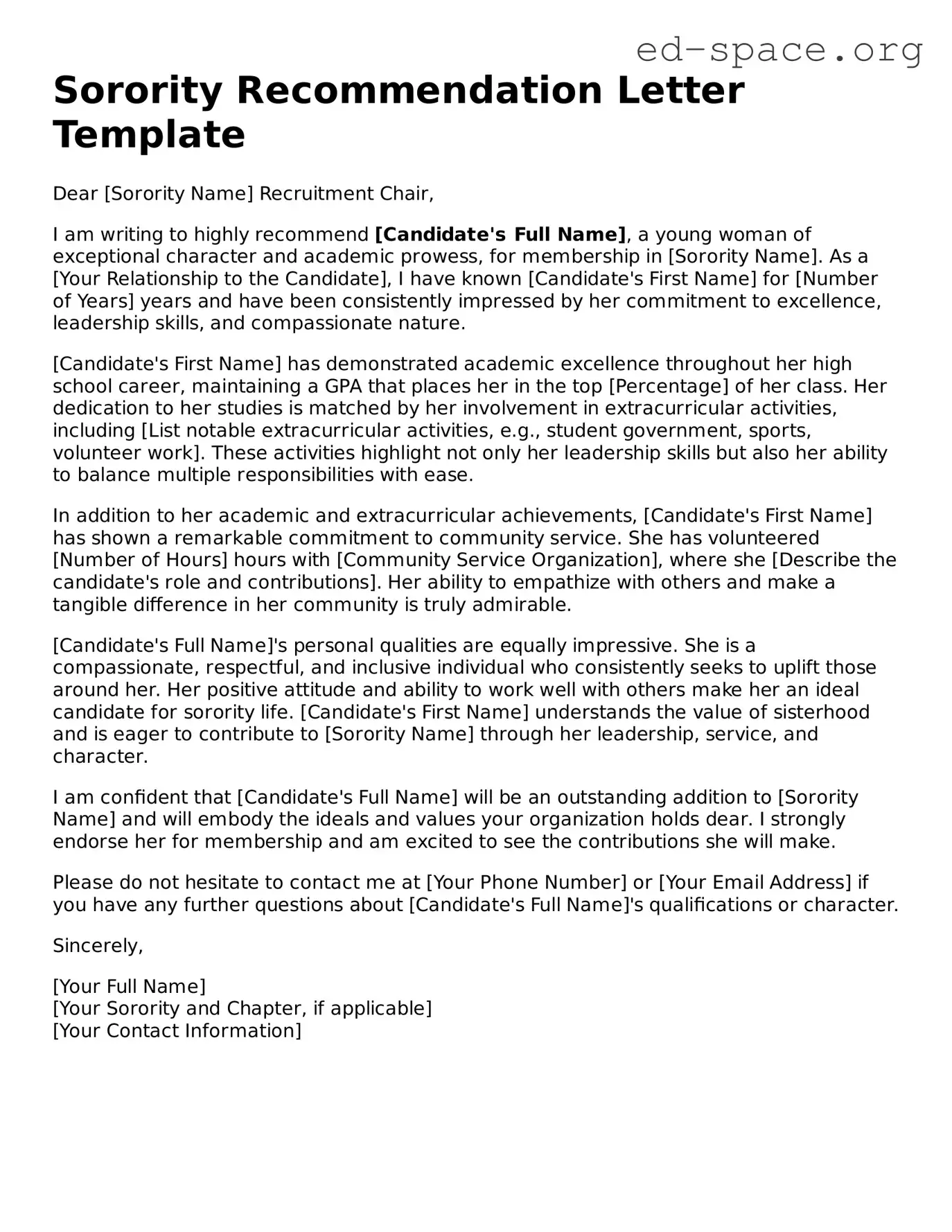Sorority Recommendation Letter Template
Dear [Sorority Name] Recruitment Chair,
I am writing to highly recommend [Candidate's Full Name], a young woman of exceptional character and academic prowess, for membership in [Sorority Name]. As a [Your Relationship to the Candidate], I have known [Candidate's First Name] for [Number of Years] years and have been consistently impressed by her commitment to excellence, leadership skills, and compassionate nature.
[Candidate's First Name] has demonstrated academic excellence throughout her high school career, maintaining a GPA that places her in the top [Percentage] of her class. Her dedication to her studies is matched by her involvement in extracurricular activities, including [List notable extracurricular activities, e.g., student government, sports, volunteer work]. These activities highlight not only her leadership skills but also her ability to balance multiple responsibilities with ease.
In addition to her academic and extracurricular achievements, [Candidate's First Name] has shown a remarkable commitment to community service. She has volunteered [Number of Hours] hours with [Community Service Organization], where she [Describe the candidate's role and contributions]. Her ability to empathize with others and make a tangible difference in her community is truly admirable.
[Candidate's Full Name]'s personal qualities are equally impressive. She is a compassionate, respectful, and inclusive individual who consistently seeks to uplift those around her. Her positive attitude and ability to work well with others make her an ideal candidate for sorority life. [Candidate's First Name] understands the value of sisterhood and is eager to contribute to [Sorority Name] through her leadership, service, and character.
I am confident that [Candidate's Full Name] will be an outstanding addition to [Sorority Name] and will embody the ideals and values your organization holds dear. I strongly endorse her for membership and am excited to see the contributions she will make.
Please do not hesitate to contact me at [Your Phone Number] or [Your Email Address] if you have any further questions about [Candidate's Full Name]'s qualifications or character.
Sincerely,
[Your Full Name]
[Your Sorority and Chapter, if applicable]
[Your Contact Information]
